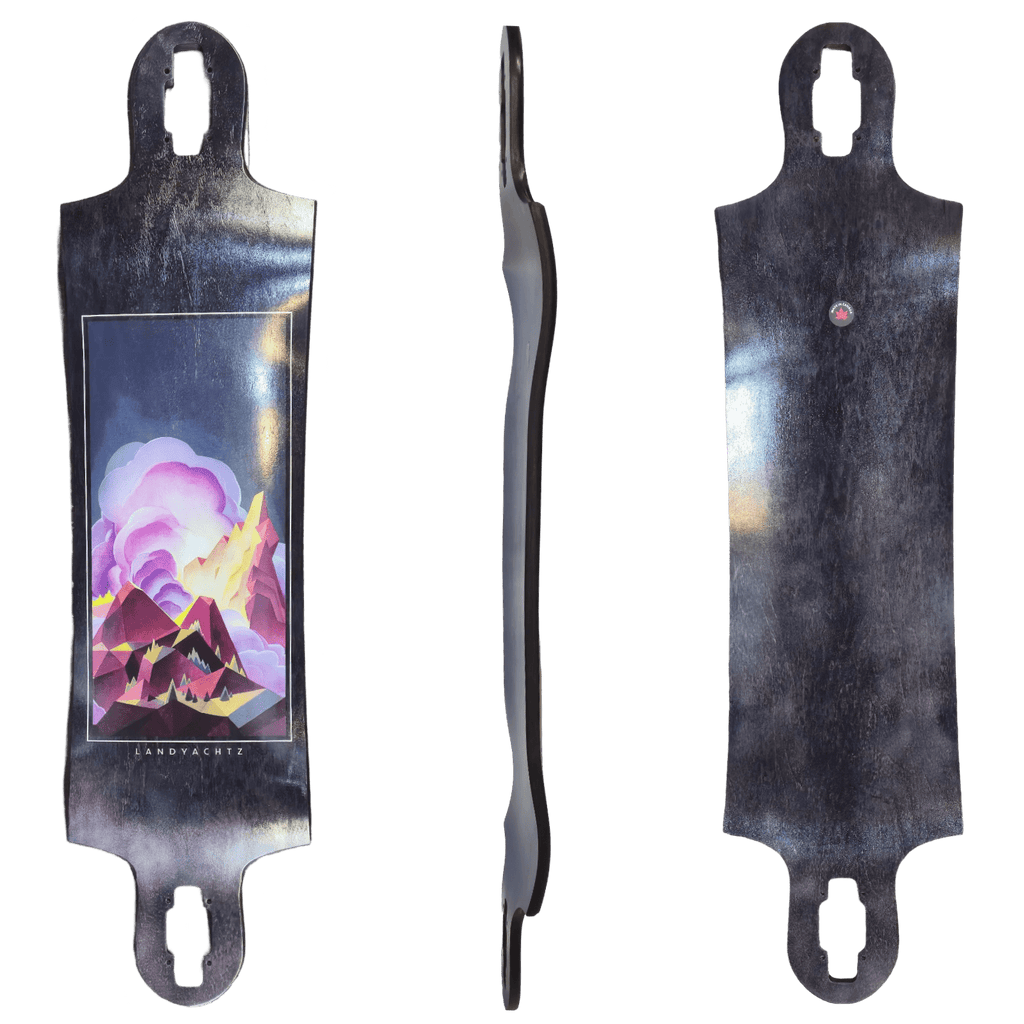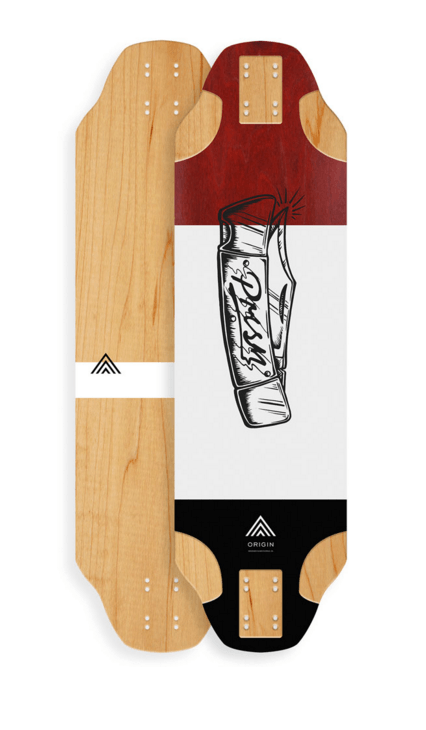
Longboard Buying Guide: Downhill
Downhill
Since the advent of the skateboard in the 1950s, racing has been a staple part of skateboarding culture. Bragging rights and a hunger for adrenaline have pushed downhill skateboarders to race each other down the fastest, most technical hills in the world. Over the years, innovators have found that longer decks, soft urethane wheels, and wide trucks are better suited for handling the ever-rising speeds that downhill racers manage to achieve. The longboard market has recently exploded with new companies producing components for downhill longboards. Read this guide to help you through choosing your first downhill longboard.
Choosing Your Downhill Deck
Covered in this Section (in order of importance)
Drop-Through (Beginners) or Top-Mount (Intermediate)
Decks in the 32-43” range will be ideal for high speed downhill
1. Choosing the Deck Style
Although any deck can be set up for downhill purposes, some are more ideal than others. After years of bombing down Southern California mountain roads, we have found that stiff drop-through and top-mount decks seem to be the best choice for getting into the downhill scene. Many legendary racers prefer the lower, more stable feeling that drop-through decks offer, but the majority of today’s top racers will agree that the quickest way down a winding road is on a top-mount deck!
Drop Through - for the beginner
If you’ve never gone fast on a longboard before, you will love (and appreciate) the stability that a drop-through deck offers. Drop-through longboards sit lower to the ground, giving the rider a lower (more stable) center of gravity, and help the fear of high speeds melt away. As an added bonus, any drop-through board may also be ridden as a top-mount! (Just mount the trucks the “normal” way — onto the bottom of a deck...) We feel that the drop through deck style is the best choice for a beginning downhill longboarder.
Click on a product to see more details.
Top Mount - for intermediate
Top mount decks attach their trucks directly to the bottom of the longboard deck. This mounting style allows top-mount decks to achieve more grip (than a drop through deck) when racing around bends. We have found that a correctly-tuned top-mount board will remain stable at high speeds (for as long as the rider is able to remain stable, that is). When it comes down to it, a top-mount board will give better performance down technical hills where sliding is necessary to slow down for tight corners. However, there are many skills to master before the advantages of a top-mount deck outweigh those of a drop-through. If you have experience on other types of skateboards or if you were born with the burning passion to be a racer, you may want to look into getting a top-mount downhill deck as your first downhill longboard.
Click on a product to see more details.
Additional Info
“How about drop-platform decks?” Sure, they’ll work fine, too! Just note that drop-platform decks won’t be able to maintain grip around corners quite as well as top-mounts and are more commonly used for freeriding. Additionally, these types of boards usually feature unique types of concave and curves which cater to specific types of riders. For this reason, we suggest a more simple drop-through or top-mount deck for your first downhill setup. Read through the rest of the guide and you'll be feeling the wind in your face in no time.
2. Choosing Deck Dimensions
Decks in the length range of 32-43" will be ideal for downhill. A shorter deck will leave you feeling unstable at high speeds while a longer deck will lack maneuverability. We do, however, recommend that beginners stick with longer setups until they are accustomed to higher speeds. If you’re unsure, just stick to something around 40-41” and you’re good to go! The width of your downhill deck is less important since it is generally tied to the length of the deck. The 9”-10.5" range is most common for downhill decks. Anything in this range being totally acceptable. If you’ve got larger shoes, you may want to consider something on the wider side, and vice-versa for smaller shoes.


